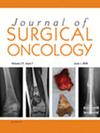Postoperative Complications in Elderly Patients Undergoing Surgery for Ovarian Cancer: A NSQIP Analysis
Abstract
Background and Objectives
Elderly patients with ovarian cancer (OC) commonly receive modified treatment due to the assumption of higher risk. The aim of this study is to evaluate postoperative complications in elderly patients undergoing surgery for OC.
Methods
Retrospective cohort study of patients with OC identified in the NSQIP database, (2013–2021). Younger patients included 40–69 years old, and elderly patients were ≥ 70 years old. Major complications included: pulmonary embolism, deep vein thrombosis, acute kidney injury, stroke, cardiac arrest, space surgical site infection, myocardial infarction, sepsis, septic shock, and return to the operating room.
Results
Of the 11,108 patients, 8214 (74%) were in the younger patient and 2894 (26%) in the elderly patient group. Elderly patients had higher rates of postoperative pneumonia (2.6% vs. 1.2%), myocardial infarction (1.4% vs. 0.3%), and major complications (3.5% vs. 2.0%), p < 0.0001 for all. Discharge to rehab was higher in elderly patients (3.1% vs. 0.5%, p < 0.001). On multivariate logistic regression, older age was associated with “major complications” (aOR 1.79, 95% CI 1.38–2.31, p < 0.0001).
Conclusions
In OC patients selected for surgery, elderly patients are at higher risk of Postoperative complications and are less likely to be discharged home. This should be considered when counseling patients pre-operatively and planning for peri-operative care and disposition.



 求助内容:
求助内容: 应助结果提醒方式:
应助结果提醒方式:


